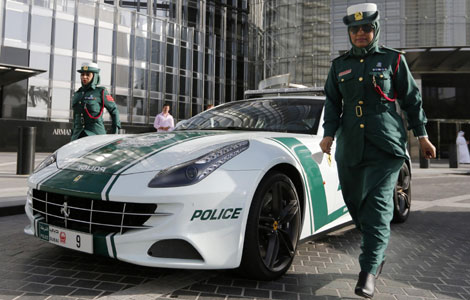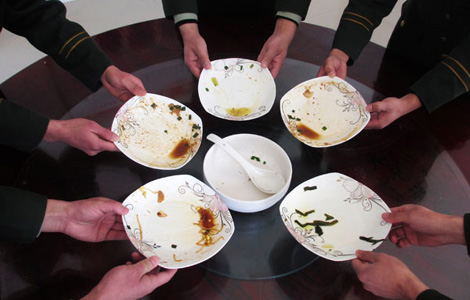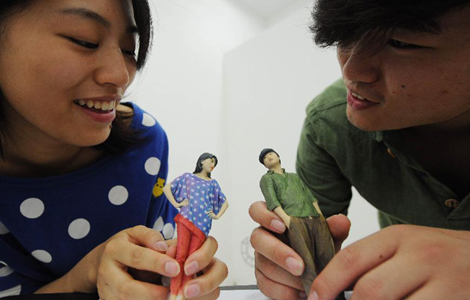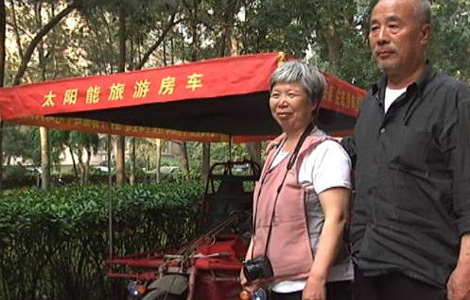From the Chinese Press
Updated: 2013-04-16 08:03
(China Daily)
|
||||||||
Literature a matter of memento?
During the Tomb Sweeping holiday, more than 1,000 tourists visited the former residence of Nobel Literature laureate Mo Yan within three days. But the visitors were anything but civilized in their behavior, scraping walls to remove bricks and digging up soil to carry home as mementos, says an article in Guangzhou Daily. Excerpts:
Last year, visitors dug up some saplings and radishes from near Mo Yan's former residence. But this year, they actually caused damage to the structure itself by removing bricks and digging up the soil in the courtyard. Many of the visitors said they did so in the belief that the mementos will help them improve their literary acumen.
But such behavior reflects not only people's superstitious beliefs, but also the spread of celebrity worship in China. The acts of the visitors to Mo Yan's residence were no different from people who carve or write their names on cultural relics and historic sites, which is against the law. Such acts should, therefore, be investigated by competent authorities and the culprits punished to deter others from doing the same.
Chinese people should respect and be proud of a Nobel Prize winner. But they have no right to damage historical sites. If people really adore literature, they should read more books and work hard to improve their writing skills, instead of falling prey to superstition. And local authorities should refrain from unnecessarily promoting the homes of celebrities as tourist attractions.
Worker has right to drive a car
People should not fuss about female sanitation worker with a college diploma for driving a 150,000-yuan car to work, because by doing so they will only be exposing their narrow mindset and prejudice against sanitation workers, says an article on Guangming Daily website. Excerpts:
A girl from a wealthy family graduated from college and got a job as a sanitation worker at Wuhan railway station. She earns 1,500 yuan ($241) a month but drives a car worth 150,000 yuan to and from work, sparking a public debate.
Some people say it is inappropriate for a young woman with a college diploma to work as a sanitation worker and drive a car to work, which is ridiculous because sanitation workers are no less human than other members of society.
When the Wuhan railway station advertised to recruit 70 sanitation workers in 2009, more than 500 people applied for the job. Besides the woman in question, two other persons with college diploma were also recruited for the job. Needless to say the competition for the job was intense.
There is no law that says a college graduate can't work as a sanitation worker. And whether a worker, be it a woman, drives a car to work or not is his/her personal choice as long as the vehicle is legally purchased. So people who criticize a sanitation worker for driving a car expose their narrow mindset and discriminatory attitude.
China's economic and social development has led to dramatic improvement in the working environment in almost all fields, and workers have the right to enjoy the benefits so derived.
People should change their traditional mindset, because that is the demand of the times. Sanitation workers are no different from other citizens, whose dignity and rights have to be respected and protected. And people who still consider sanitation workers lesser human beings should shed their prejudice and accept reality.
(China Daily 04/16/2013 page9)
Most Viewed
Editor's Picks

|

|

|

|

|

|
Today's Top News
Relationship 'relaunched'
Good start expected for summit
Xi, Mexican president discuss bilateral co-op
Cooperation to drive mutual growth
Chinese president arrives in Mexico for state visit
China is victim of hacking attacks
US to be largest trade partner
China joins fight against hacking
US Weekly

|

|
















